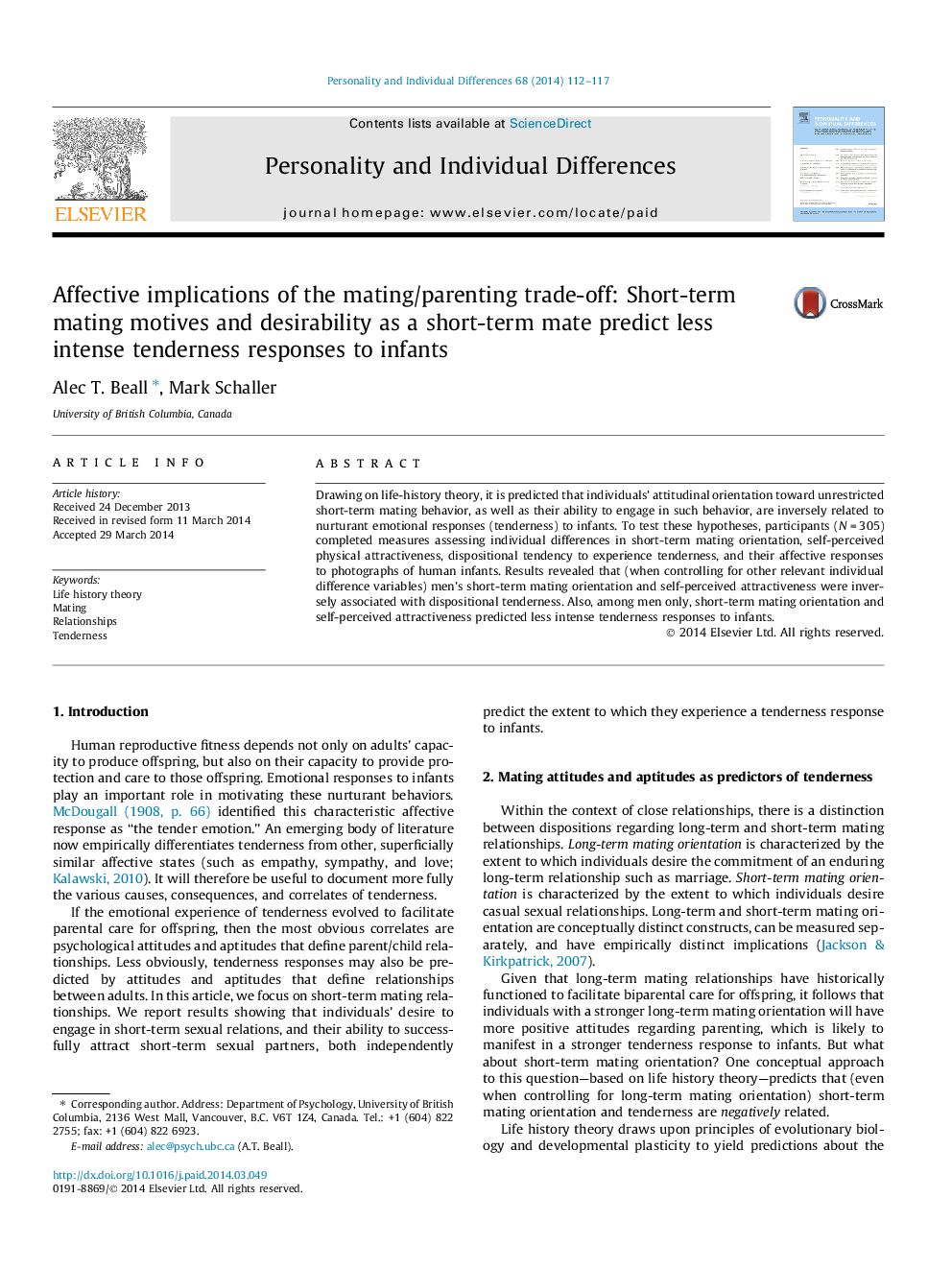| Article ID | Journal | Published Year | Pages | File Type |
|---|---|---|---|---|
| 7252230 | Personality and Individual Differences | 2014 | 6 Pages |
Abstract
Drawing on life-history theory, it is predicted that individuals' attitudinal orientation toward unrestricted short-term mating behavior, as well as their ability to engage in such behavior, are inversely related to nurturant emotional responses (tenderness) to infants. To test these hypotheses, participants (NÂ =Â 305) completed measures assessing individual differences in short-term mating orientation, self-perceived physical attractiveness, dispositional tendency to experience tenderness, and their affective responses to photographs of human infants. Results revealed that (when controlling for other relevant individual difference variables) men's short-term mating orientation and self-perceived attractiveness were inversely associated with dispositional tenderness. Also, among men only, short-term mating orientation and self-perceived attractiveness predicted less intense tenderness responses to infants.
Related Topics
Life Sciences
Neuroscience
Behavioral Neuroscience
Authors
Alec T. Beall, Mark Schaller,
